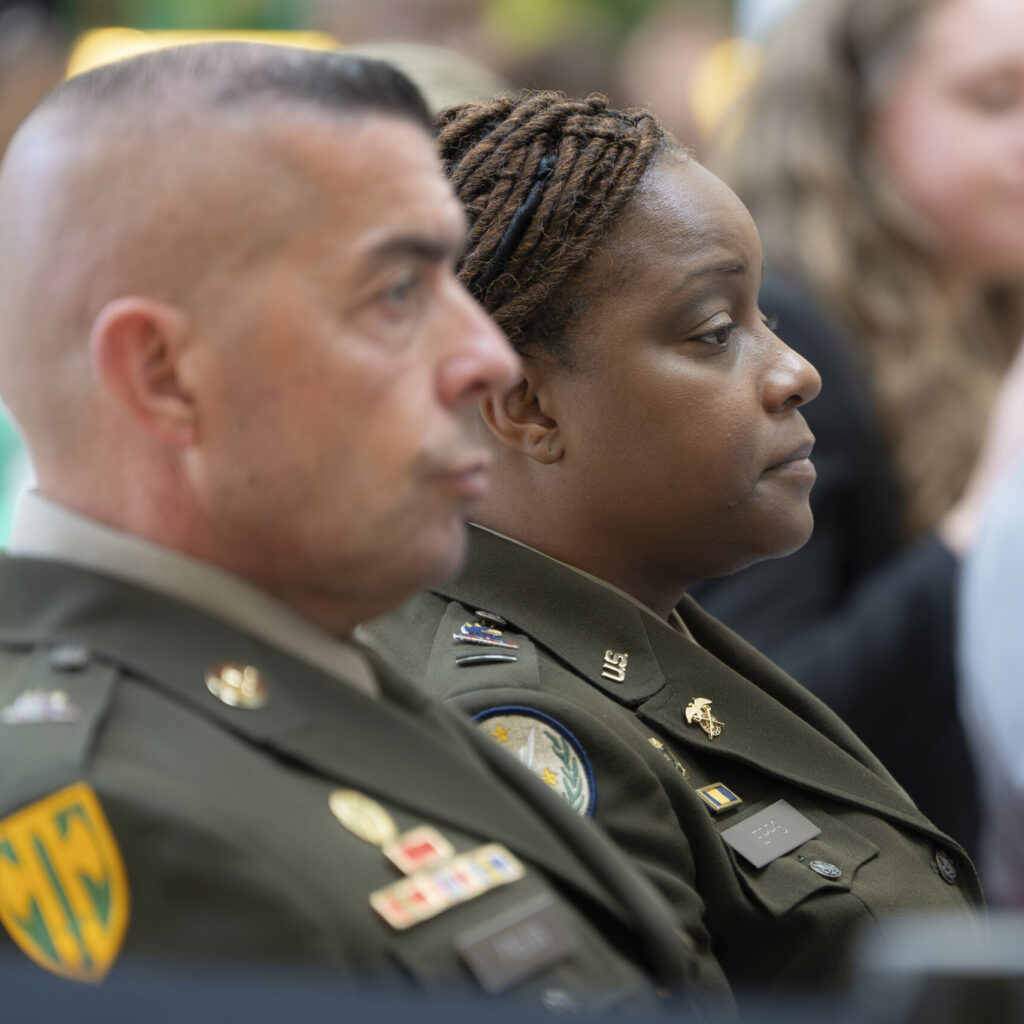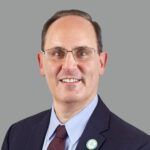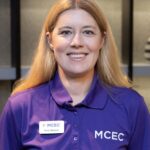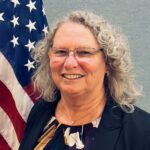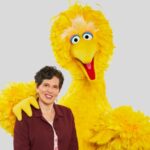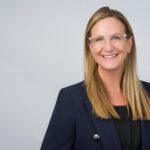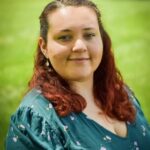In 2021, the Elizabeth Dole Foundation (EDF) released a study indicating that roughly 2.3 million children across the U.S. serve as primary or secondary caregivers to family members wounded, injured or ill due to their service in the U.S. military. They are our nation’s hidden helpers.
To better support these children, EDF partnered with the Wounded Warrior Project and the White House’s Joining Forces Initiative, led by First Lady Dr. Jill Biden, to create the Hidden Helpers Coalition. The coalition comprises over 100 partner organizations, including government agencies, non-profits like Nemours Children’s Health, and private sector entities.
To highlight coalition efforts over the last three years and announce new commitments, Nemours Children’s, the Office of United States Senator Tom Carper (D-DE) and EDF held a forum at Nemours Children’s Hospital, Delaware, entitled “Supporting Our Military Families and Hidden Helpers.” This podcast is the second of a two-part episode series featuring event highlights.
Featuring an introduction from Jill Biden, Ed.D., First Lady of the United States, and closing comments from R. Lawrence Moss, MD, CEO, Nemours Children’s Health and Steve Schwab, CEO, The Elizabeth Dole Foundation.
Guests:
Matthew Cook, MBA, CEO, Children’s Hospital Association
Daniel Podberesky, MD, FACR, SVP, Chief Medical Officer, Nemours Children’s Hospital, Florida
Tara Gleason, MEd, Director of Programs, Military Child Education Coalition (MCEC)
Laurie Sisk, School Liaison Program Manager, Dover (DE) Airforce Base
Denise Stouffer, MEd, Head of School, Providence Creek Academy
Jeanette Betancourt, EdD, Senior Vice President, U.S. Social Impact, Sesame Workshop
Charo Bates, MBA, MS, MA, Program Manager for Hidden Helpers, Elizabeth Dole Foundation
Tina Atherall, DSW, LMSW, CEO, PsychArmor Institute
Annie Pabon, Hidden Helper
Host/Producer: Carol Vassar
TRANSCRIPT
Voiceover:
Welcome to Well Beyond Medicine, the world’s top-ranked children’s health podcast produced by Nemours Children’s Health. Subscribe on any platform at nemourswellbeyond.org, or find us on YouTube.
Carol Vassar, podcast host/producer:
Each week, we’re joined by innovators and experts from around the world, exploring anything and everything related to the 80% of child health impacts that occur outside the doctor’s office.
I’m your host, Carol Vassar, and now that you are here, let’s go!
MUSIC:
Well beyond medicine!
Carol Vassar, podcast host/producer:
First Lady of the United States. Dr. Jill Biden, as heard during her videotaped opening remarks at the recent Supporting Our Military Families and Hidden Helpers Forum held at Nemours Children’s Hospital in Wilmington, Delaware, in June 2024.
Dr. Jill Biden, First Lady of the United States
Almost three years ago, I held my first in-person event in the White House’s East Room.
Under the sparkling chandeliers, besides Senator Elizabeth Dole, representatives from Nemours, and so many other partners with masks on and distance between us, I spoke about the Hidden Helpers Coalition, and we talked about our mission to support the millions of children who help care for our wounded and ill veterans in the years since, as I’ve traveled the country and the world through joining forces.
I’ve met those children in many ways; they’re kids just like any other, but their understanding of the world sets them apart. They know what it’s like to sleep in a hospital room chair to help change bandages and keep track of medications, to take care of their siblings as they go from doctor’s appointment to doctor’s appointment.
They are brave and strong, but they can’t do it alone. We need your help to keep going. You know when the children you see every day are struggling, and together, we have the power to help them. Thank you for stepping forward and committing to making our schools, hospitals, and government work for hidden helpers and their families.
As many of you may know, the Bidens are a military family. My father served as a Navy signalman in World War II, and our son, Beau, served for a year in Iraq as a member of the Delaware Army National Guard. So this is personal to me and to the military families in the audience. Your senator and I are listening, and so is your president.
Know that you will never be in this alone. May God bless our military and veteran families, caregivers, and survivors. Thank you.
Carol Vassar, podcast host/producer:
Dr. Jill Biden, laying out the origins and mission of the Hidden Helpers Coalition, established in 2021 in partnership with the Joining Forces Initiative, which she spearheads the Elizabeth Dole Foundation, EDF, and the Wounded Warrior Project.
This is the second of two episodes highlighting discussions from the recent Supporting Our Military Families and Hidden Helpers Forum, sponsored by Nurs Children’s Health, the office of US Senator Tom Carper, and EDF. We hear from experts in education and health care about ongoing and future efforts by the coalition to support the youngest members of our military and veteran communities.
First, though, let’s hear from a Hidden Helper about her experiences growing up in a military caregiving home. Annie Pabon is the oldest of five children of Sylvia and Alex Lopez. Alex served as a mortuary affairs specialist in the US Army and Army Reserve for 15 and a half years, deploying worldwide to help recover the remains of fallen service members.
Now retired. Alex has been diagnosed with traumatic brain injury, PTSD, and depression. His injuries require 24/7 care, most of which is provided by his wife, whose story we heard in our last episode, and his children. Now a young adult Annie joined us to share her reflections on growing up as a Hidden Helper.
Annie Pabon, Hidden Helper:
Thank you for inviting me to speak today. I would like to start by sharing a little bit about how my dad’s injuries affect our lives. As my mom mentioned, he suffers from depression and PTSD. So normally, he’s very loving. However, these hidden injuries could make him act, get triggered and sad and into dark places. As kids, these seem like to come out of nowhere, so if we showed up to an event and party and there were a lot of people, he’d get extremely anxious, so we’d have to leave. If we went to a family picnic and he smelled the barbecue, he get flashbacks from his time in combat, and we would have to try and get him out of that situation.
If Taps played on TV or in a movie, it would send him into a sudden depression, reminding him of the times when he presented folded flags to Gold Star Families. My mom always took the lead on watching for my dad’s triggers, but even as kids, we became hypervigilant about what might upset him. In some ways, we became sensitive to the triggers, and because of that, we were watching over every possible thing that could set him off, and it gave us an anxious feeling.
During these times, my dad did not feel comfortable going to parties, movie theaters, or large gatherings, and mom always felt like she needed to be there for him. So, as kids, we missed out on a lot of things that our friends were doing. As the oldest child, I had a little bit more freedom, but I felt more responsibility for the family. I would keep my little brother and sisters calm and out of my dad’s way when he needed space. I also helped my mom with taking my dad to his appointments, cleaning the house or even making meals for the family.
On top of all the responsibilities and worries, being a caregiver kid can feel very lonely. We are already socially isolated. Then, we quickly learn that most people cannot relate to our experiences. Most kids don’t have to care for their parents while they’re still teenagers. Other students don’t come to school after their dad had been taken to the emergency room in the middle of the night again. My friends didn’t have to watch for signs that their dad was getting dizzy or might fall or certainly relive a painful war memory. Even adults in my life, my doctors, teachers, and coaches, never understood what was going on at home.
When I would go to doctors to talk about my anxiety, they would insist something must have been going on at school, and even if I told them that my dad was a veteran or that he had PTSD, it didn’t paint the whole picture for someone who wasn’t familiar with those military experiences or the pressure they put on a child. Even if I told my doctors that I help care for my dad, they never seemed to anticipate anything beyond that I help care for my dad. They never understood how consuming and emotional it all could be.
At times, I will find the courage and patience to explain my experience only to have to do it again for the next doctor and the next or to my teacher or boss or friend. It became difficult and exhausting. While millions of caregiver kids in America, it shouldn’t be on us to educate everyone around us. That’s why the Elizabeth Dole Foundation and Nemours partnership is so important. Even if a non-career never fully understands our situation, just knowing the right question to ask, the symptoms to look for, and the help that might be beneficial will go a long way in getting kids the care they need.
Carol Vassar, podcast host/producer:
Thank you so much for sharing your story. Oh, my goodness. It’s my pleasure to introduce our second panel. Tara Gleason is the Director of Programs at the Military Child Education Coalition. That’s MCEC, right?
Tara Gleason, Director of Programs at the Military Child Education Coalition (MCEC):
Yes.
Carol Vassar, podcast host/producer:
Excellent. Thank you. MCEC supports the military connected families by educating, advocating, and collaborating to resolve education challenges associated with the military lifestyle. Laurie Sisk is the Dover Air Force-based school liaison program manager. School liaisons are located at each military installation. They are the central point of contact for commanders, military families, and local school systems on school-related matters for grades pre-K through 12. Denise Stouffer has been working in the field of education for over 30 years. She’s head of school at the Providence Creek Academy, which in 2023 was designated a Delaware Purple Star School for its support of military children, and Dr. Jeanette Betancourt, Senior Vice President of the US Social Impact at Sesame Workshop, the nonprofit organization behind Sesame Street. She directs social impact initiatives to influence young children’s development, resilience, and coping with difficult challenges along the way as they head into adulthood.
Tara, let’s start with you. MCEC has done important work supporting children in military-connected families, both on its own and as co-chair of the education subcommittee with the Hidden Helpers Coalition. Summarize for us the work MCEC has done in education and in the education space to support children in military-affiliated families.
Tara Gleason, Director of Programs at the Military Child Education Coalition (MCEC):
So, we started the work by listening. First, we brought together all these collaborative coalitions. We knew that there was a need, thanks to the Mathematica report put out by Elizabeth Dole Foundation and the Hidden Helper Coalition. We knew that we had to listen first and then look at bringing together all these partner organizations to come around this issue of supporting military kids. So we at our MCEC Global Training Summit, we had a panel where we had Kris Rotenberry, and we elevated the voices of students themselves, the Hidden Heroes, their parents, and also youth-serving professionals, and that’s the approach that we’ve tried to take on the education subcommittee, taking a 360 approach to provide supports to students and children themselves, their parents, and also the professionals that serve them.
So we do that through a wide variety of ways: in-person delivery and virtual delivery through things like webinars and round tables. And even Project Echo has an education branch, where professional learning communities come together and talk about these challenges and come to the table with solutions. So we’ve been really excited and honored to be a part of the Education subcommittee along with PsychArmor, our military kids. I was going through my remarks for today, and I thought, “Can we mention all the different organizations?” Steve mentioned there’s over 100, and I thought we’re going to miss someone, the Wounded Warrior Project, the American Red Cross, of all the work that all of us coming together.
And that’s what’s been unique and amazing about this opportunity is all of these organizations coming together to try to centralize resources, to raise awareness first, reduce isolation and feelings of loneliness. And this is what we saw in the report and we’re hearing from kids themselves for those who are honored and privileged to do direct support like our organization, “How do we do that?” We know resources are out there, but the fact that we’re all coming together and creating resources to address those needs has just been a tremendous honor and something we’ve just been so happy to do.
As far as the work that still needs to take place, we need to be putting forward the military student identifier. And you may be wondering, what does that have to do with providing supports? That can be used as a universal screener so that those type of supports can be put in place. We cannot help what we cannot see, so making sure with the military student identifier that it includes our guard and reserve families. Also, do we want to reach goal? What about including Hidden Helpers, those military-connected youth who serve in caregiver roles? Because we cannot help them if we do not see them. So that is the work to come.
In addition to extra supports, we’re working right now with PsychArmor and we’re going to be launching a new professional development series. If you’re interested in the pilot, it’s coming out later in July through August. But know that this work is happening. You can come to any one of us within the coalition and we can help connect families and students directly or other youth-serving professionals to the supports that are out there. So thank you so much, and we are listening.
Carol Vassar, podcast host/producer:
There’s a lot going on. Thank you, Tara. We’re going to move on now to Laurie Sisk and Denise Stouffer. They’re tag-teaming today. Laurie, describe for us your role as a school liaison, and give us an example of how the work you do has helped some of Delaware students from military families.
Laurie Sisk, School Liaison Program Manager, Dover (DE) Airforce Base:
Yes, happy to. First off, I want to say school liaisons are purple, which is why I am wearing purple. We support members in all branches of service, active duty, guard reserve, retirees, and DOD civilians. That is a large population. Anyone can reach out to a school liaison, and we’re here to help. One of the things school liaisons do is that we work with our state legislators on helping make policy. I have had the honor of being asked to provide feedback on House Bill 354, which would provide military-connected students to have priority and school choice, which is huge for our families, and that ties in then with our goal. Our mission is to help with the readiness, retention, and recruitment of military members. If they know that their student is safe at school and they are able to get a school that meets the needs of their student, this is a huge win for our families.
I also work with our schools on the Purple Star School program. It’s a way for our families to know and understand that these schools know and understand the unique challenges our military students face and that they understand that their social and emotional needs there also. Denise here; she is our second Purple Star School for the state and the first charter school to receive this. So this is huge for us. We currently have five schools that are Purple Star. I hope to have more. Next April, I will go into the schools and sit with our teachers, our administrators, review that process, review that application. I work with them throughout the whole step and I provide them resources.
Carol Vassar, podcast host/producer:
We’re going to talk momentarily about Purple Stars Schools, but Denise, I want to ask you first as a Purple Star School. Can you share some of the specific programs you have implemented in your school to support military-connected families and how have they helped military-connected youth as well as the general population, I would think?
Denise Stouffer, Head of School, Providence Creek Academy:
I think first of all, professional development, making sure that when families do contact us, we not only hear what they say, but that we’re listening to them and we’re able to accommodate their needs. The great thing about everything Purple Star, for other people in the house who are educators, is that it’s free, and that’s a rare thing in education to find things that are free. Here in the state of Delaware, I think what’s amazing, not to say that we couldn’t always use more, but it’s also funded. We have mental health dollars. The programs for military families, these programs not only benefit our children and our families, but they also benefit every other child that walks through the doors, the kids that Laurie’s talking about, the peer mentoring programs through Anchored for Life, setting up and establishing therapeutic programs that are specific to children, and it’s just amazing that we’re sitting here in Nemours Children’s Hospital because having programs for therapy that work with kids, farm therapy programs like we have at our school, art therapy programs, play therapy programs, these same programs benefit not just our military-connected children, but all children.
So, in essence, what you hear from the speakers today, in my opinion as a mother of a Marine, as the wife of a Marine, and as a school leader, is what we’re hearing is that these initiatives are leading the way, not just for military kids, but for all children. So, the peer program that I know our family spoke about through Anchored for Life is incredibly powerful. Watching a child sit with a teddy bear and talk about how that teddy bear is important because he sprayed his mom’s perfume on it before she deployed, watching children in a group for grief stand by a horse and paint their hands with chalk, which represent all the burdens they’re carrying and being able to put that on the horse so that the horse can carry it, those are the things that are going to make a difference in someone’s lives and how they can process and do things.
And I’ve just been incredibly honored to have a Purple Star. I was very passionate about it. Laurie knows it. She really helped me about it, but also being able to provide these programs to our military-connected youth is incredibly important. And again, it’s the catalyst for what do we do for all children.
Carol Vassar, podcast host/producer:
A lot of work goes into the important details that maybe others hadn’t noticed but are really important to these families and these children. Dr. Betancourt, I would love for you to discuss Sesame Workshop’s tools and materials. As you reflect on those resources created specifically for military and veteran families, what are you most proud of?
Dr. Jeanette Betancourt, Senior Vice President for U.S. Social Impact, Sesame Workshop:
I think just being here with everyone here, the idea of Sesame Workshop, where really Sesame Street being part of the way that we can contribute and support our military families is truly an honor, but more importantly, is learning from our military families and across what we call a continuum. We’ve heard a lot about school support, but our strongest effort is how do we bring the voice of the young child. Mrs. Lopez described her experience with her six-year-old that mentioned something really important for young children that’s critical for us, and that is the idea that little ones tend to show us rather than tell us.
So, if we really want to build the resilience, and we know that when a service member serves, the entire family serves. When we also know that a caregiver or a service member is impacted by caregiving, the entire family serves, but we often forget the voice of the young child. So what we’ve done is actually heightened and “Sesametized.” Yes, we love that term, “Sesametized” information so that both the joys of military or even caregiving life are brought up as well as the challenges, and we do it in a continuum.
We start off with, again, helping either explain the very tough topics, whether it’s grief, whether it is understanding visible and invisible injuries, whether it’s celebrating together the sudden homecoming and understanding those transitions. The last thing, the power of our wonderful Muppets, is that they speak and model for adults just as they do for children.
Carol Vassar, podcast host/producer:
When you look at all the work that’s been done here, all the work that you’re doing at Sesame Workshop, what do you see as the most significant needs and gaps in terms of support for preschool-aged children in particular in military families?
Dr. Jeanette Betancourt, Senior Vice President for U.S. Social Impact, Sesame Workshop:
I think it’s looking at support systems. We’ve heard a lot about schools. We’ve heard a lot about mental health. We heard also a lot about transitions in military life and also understanding the nuances of caregiving. I think if we look at it as a continuum, families travel. They often move, transition, and so those services often become slightly fragmented. So, having the idea of empowering families themselves along with their children and advocating that as a family, we need the continuum of services.
So from the Sesame Workshop point of view, what we believe is we’re setting a foundation for our youngest children to have a voice as equally as is for the adults. And if you think of that from a resilience point of view, if we build the resilience of our young children as early as possible and also their voice, their ability to be able to express themselves for the adults to understand them as well, then what we’re doing is setting a trajectory of power, success, and also empowerment for children and adults alike.
Carol Vassar, podcast host/producer:
What are you excited to tackle next?
Dr. Jeanette Betancourt, Senior Vice President for U.S. Social Impact, Sesame Workshop:
Oh, my goodness. So, like yourselves, we believe very much in what we call the lived experience. So every person here who has served, and we heard it from our military families themselves, is that they have very much a very much of an opinion. We’re doing a lot on emotional well-being and mental health, and lastly, how do young children express emotional distress? Again, they show us rather than tell us. And so, how do we detect that early? So we’re not doing intervention, rather we’re doing prevention.
Carol Vassar, podcast host/producer:
Here, here. Thank you. Thank you so much to our panel, Tara, Denise, Dr. Betancourt. Laurie. Thank you so much. Our final panel focuses on the healthcare sector. Charo Bates is the program manager for Hidden Helpers with the Elizabeth Dole Foundation, where she focuses on helping young caregivers of wounded, ill, and injured veterans who are providing that unseen, unrecognized, and unsupported national service that Annie just outlined for us in her own experience. Dr. Tina Atherall is the CEO of PsychArmor Institute, a nonprofit organization that provides online education and training to support the military and veteran community. She holds a doctorate in social work.
Matthew Cook is CEO of the Children’s Hospital Association, CHA, representing over 200 hospitals, children’s hospitals, and healthcare systems, including hospitals that serve military and veteran families. He’s an established healthcare industry leader with decades of leadership within children’s hospitals and maternal health programs. Dr. Dan Podberesky, Chief Medical Officer and Senior Vice President at Nemours Children’s Hospital, Florida, a pediatric radiologist by training, Dr. Podberesky has served as an active duty officer in the US Air Force. He did that from 1998 to 2003, performing his internship and diagnostic radiology residency, and from 2004 to 2008, he served as Chief of Pediatric Radiology at Wilford Hall Medical Center at Lackland Air Force Base in Texas. He was awarded the US Air Force’s Meritorious Service Award and Achievement Medal and was named a Veteran of Influence by the Orlando Business Journal in 2019. Welcome to all of you.
Charo Bates, I would love to open our panel with you. What and how do you hope to catalyze members of the Hidden Helpers Coalition in response?
Charo Bates, Program Manager for Hidden Helpers, The Elizabeth Dole Foundation:
Absolutely. Well, first and foremost, thank you, Annie, an amazing job. I know telling your story is not easy, and as you mentioned, you’ve told it multiple times, so applause to you and all that you’ve done for your mom and your family, and your siblings. I think Annie’s stories show what providers can truly do and their impact. How many times did we go to a doctor’s appointment and we leave and we forget, “Oh, I meant to tell my doctor this,” or, “I meant to tell my doctor that,” but had they spoken with Annie or her mother and just, “Hey, your dad, I know you probably can’t remember everything, but this is an inclusive care plan that we really want to provide for you, and we’re here for you and we’re going to support you.” And so that’s what we really can do is just wrapping our arms around these families and making sure that everyone is seen and they’re a part of this plan.
We’re not going to recover or even improve if we don’t do that, but that’s why we’re so grateful to Nemours and this incredible project that we’re doing with these modules, the educational component, the information, and just awareness. Everyone here today will leave and tell someone else, and that will spread even more. That’s why at the Elizabeth Dole Foundation, we were so thrilled for our Hidden Helper Coalition because we know two things. There’s power in numbers, and there’s power in voices, but action-packed behind that is even more critical and important.
So please don’t ever forget about our veteran families because often, they’re in a siloed space, they’re forgotten about, they’re not seen. Active duty as well, but we often see our active duty, even if it’s just in uniform or we’re very proud to talk about them. But when you transition from that active duty to veteran space, it is so difficult, like you’re leaving a culture you’ve been a part of for an extensive period of time in a family, and now it’s trying to figure everything out. So, where do we go from here? So again, just constantly spreading that word, that knowledge, that information. If you’re interested, we’d love to talk more about being a part of the coalition and how we’re really going to move this needle forward because we can’t do it. Again, power in numbers and voices, and specifically in action.
Carol Vassar, podcast host/producer:
It takes collaboration.
Charo Bates, Program Manager for Hidden Helpers, The Elizabeth Dole Foundation:
It does.
Carol Vassar, podcast host/producer:
So we have our charge moving out of here today. Collaborate. Dr. Atherall, describe your mission at PsychArmor and discuss how training opportunities and resources that you’ve created for healthcare professionals. I took this myself as part of your 2021 commitment with the Hidden Helpers Coalition, have helped address some of the issues that families here today and families out there have raised.
Dr. Tina Atherall, CEO, PsychArmor Institute:
So, our mission at PsychArmor, and as it relates to health and behavioral health providers, do you know that Rand and Bush Institute statistically say about 12 to 18% of health and behavioral health providers have any type of cultural training or cultural awareness training about the individuals that they’re serving? So my call to all of you is that’s not okay, and we are outside of our professional guidelines and competencies in what we are supposed to do in terms of service delivery. So this clinical training is not only a nice to have, it is a must-have.
So, at PsychArmor, we have this thing called Veteran-Ready, which, by the way, is going to be military, culturally informed communities because we know that it’s not just about the veteran, veteran status, or active-duty military. So my call to action with you, I have one minute and 35 seconds left, is that I would ask that you please look at PsychArmor from a dissemination model.
Anybody can enter onto our website, take a variety of courses at any time, any day, and become this Veteran-Ready healthcare provider, Veteran-Ready organization. But you could work with us deeper on a variety of different ways. I need to be five to 10 years ahead of anything that we’re talking about right now.
So youth mental health has been at our forefront for about four years. Why? Because in the state of California, they have a health initiative that says military, military youth, guard reserve, not even veterans, had a higher suicidal ideation rate than their civilian counterparts. Any of us that live in this world, we understand that. When we talk about suicide prevention, intervention, and postvention, we’re often looking at the military member or the service member. We need to be looking at the entire family system. So we’re already ahead of you on that.
So what I ask is in all those areas that we’re talking about today, we need to be continually ahead because we’re already behind for my 19-year-old and my 28-year-old and those in between. They didn’t get the benefit of this conversation. So our commitment is to remain your partner. We are not a standalone. We are your education capability, and we really want to work with you and your goals ahead. So there we go.
Carol Vassar, podcast host/producer:
Excellent. Thank you. Community collaboration, absolutely. Matt Cook. Matt, as others have noted today, Nemours chairs the clinical work group of the Hidden Helpers Coalition, looking to expand it. I understand you also have an announcement to make today. Can you share how CHA, the Children’s Hospital Association, is partnering with Nemours and the Elizabeth Dole Foundation to expand participation of children’s hospitals in the coalition?
Matthew Cook, CEO, Children’s Hospital Association:
Absolutely. So again, thank you for being here. It’s such an honor to be a part of this event. So, we’re announcing today that CHA is officially joining the Hidden Helper Coalition. And as was noted, we do represent 200 hospitals across the country. We’ve heard the stories. We know that in every zip code in this country, we have military-connected families. And so we’ll be using our platform to encourage all of our members to become active in the coalition.
Carol Vassar, podcast host/producer:
Thank you for your commitment. That is fabulous. So we’re taking this nationwide. I want to follow up with almost a completely different question, but CHA released a report that highlights the vital role of Medicaid for children of military families. What can you tell us about the findings in that report?
Matthew Cook, CEO, Children’s Hospital Association:
It’s really an interesting situation. So military families are generally covered by TRICARE, which is a Department of Defense program, a very nice program, and that program actually is based on Medicare. So it’s based on a healthcare program for the population that’s 65 and older. So that can create gaps for kids, and then that’s where the Medicaid program comes into play. So we know that there are about 2.2 million kids that are covered by the Medicaid program that are part of connected military families, and about 1.7 of those 2 million are children of veterans.
We also know that children who are covered by TRICARE, and getting to the point that you just made, they tend to have higher incident rates of complex medical disease, of mental health diagnoses than children who are covered by other insurance programs. So Medicaid plays a vital role here in providing coverage for kids in military-connected families. That is often surprising. I don’t think we normally think about the Medicaid program being as vital for our connected families, but what also is interesting is there are about 800,000 military-connected kids that are eligible for Medicaid that are not currently enrolled. So we have a gap. We have a significant number of kids who could be covered by the Medicaid program who do need services that are not covered.
Carol Vassar, podcast host/producer:
More work to be done in that area.
Matthew Cook, CEO, Children’s Hospital Association:
Yeah, a lot more work to be done.
Carol Vassar, podcast host/producer:
Thank you, Matt. Dr. Podberesky, I’m going to turn to you to close out this final panel. Dr. Moss noted in his remarks earlier that Nemours Children’s has made a commitment and made a commitment in 2021 to collaborate with the Elizabeth Dole Foundation to create a free nationally available provider education course aimed at increasing the ability of healthcare providers to understand and respond to the needs of military-connected children, especially children who are part of the military caregiving homes like Annie. Now that that commitment is complete, I understand Nemours Children’s has additional commitments to announce. Can you share?
Dr. Daniel Podberesky, Nemours Children’s Health:
I’d be happy to. I’m really proud to be representing Nemours Children’s Health up here with this panel and our leadership role that we’ve taken with the Hidden Helpers Coalition, but we have more to do. And so to answer your question, Carol, I’ll start off by mentioning when I was in the military, I spent the vast majority of my time in San Antonio, Texas. I had access to two world-class, tertiary, quaternary care hospitals. So when my wife had to bring my kids in for anything, nobody really needed to understand what she or my kids were going through. It was just an automatic, they knew. They didn’t get on base without an ID. So I’m watching families come in here. There isn’t a big sign on their forehead that says, “Hey, I’m a military person. I’m a military family. You need to understand what I’m going through or what I’m dealing with at home.”
And it’s not as easy as you may think to identify a military family, but we’ve created a process, and we will soon be deploying a process where every family, when they come in, just like they’re asking for birthdate and name and address, we will endeavor to find out are they a military-connected family and we will have that information front and center for all users of our electronic medical record across the entire enterprise so that it’s right there, name, birthdate, address, insurance, and then it’ll have military status. So, to your point, I think understanding requires actually identifying these families. So I think that’s a huge step. Thank you.
I give a lot of credit to the IT folks because you’d be surprised how hard this was to do. It took a lot of work. So, kudos to the IT folks for figuring that out. Second, if I have time, I’ll go through a few more quick ones. Kidshealth.org, it reaches about 200 million visitors each year, so big, big platform. So Nemours is going to double down on ensuring that we have physician-reviewed, military-focused content that we’re going to continue to put out on kidshealth.org so that it remains that top place where people go to get information for their children.
The other thing I’ll mention about military people is we don’t go around touting that we’re military people. It’s not something that we go around yelling and waving our hands about. We have hundreds of military-connected families and employees here at Nemours. We didn’t really have a way to connect with each other, to talk to each other, to share our experiences on the things that we’re going through, and now we do. So it’s called Salute. Many of the people in the audience are already involved with that. We have big plans, community service, working with the VA and the Fisher House at the bases near us and the veterans administrations near us. So I wanted to announce that as well.
Fourth, we recognize the critical role of public policy. So, the Nemours Children’s Public Policy team commits to continuing to leverage our state and federal resources and connections to support policy and advocacy, for example, in the area of mental health for children and families in military-connected families. So a round of applause for the public policy group as well.
Finally, and just to dovetail on what’s already happened in the last two hours, we will continue to work to deepen our external partnerships with folks up on the stage right now and others in the audience. We commit to working with CHA, with the Veterans Administration, and others to increase participation in healthcare organizations within the Hidden Helpers Coalition using its clinical transformation subcommittee as a vehicle for peer-to-peer learning and actions in support of families.
So I will conclude by saying as a veteran, as a pediatric subspecialist myself, I’m really energized, and I’m really hopeful that additional peer institutions will join the Hidden Helpers Coalition so that we can learn from one another and continually improve the way that we serve military families to whom we owe so much. So thank you.
Carol Vassar, podcast host/producer:
Thank you so much to our guests today, Annie Pabon, Tara Gleason, Laurie Sisk, Denise Stouffer, Dr. Jeanette Betancourt, Charo Bates, Dr. Tina Atherall, Matthew Cook, and Dr. Daniel Podberesky, each bringing to the supporting our military families and Hidden Helpers forum their unique perspectives on our nation’s hidden helpers. You can hear part one of this series by going to nemourswellbeyond.org. That’s nemourswellbeyond.org, where you can also find all of our previous podcast episodes, leave a review, and subscribe to the podcast.
Our production team for this episode includes Jay Parker, Cheryl Munn, Susan Masucci, Lauren Teta, Daniella Gratale, Hannah Wagner, and Casey Osgood. I’m Carol Vassar. Until next time, remember, we can change children’s health for good well beyond medicine.
